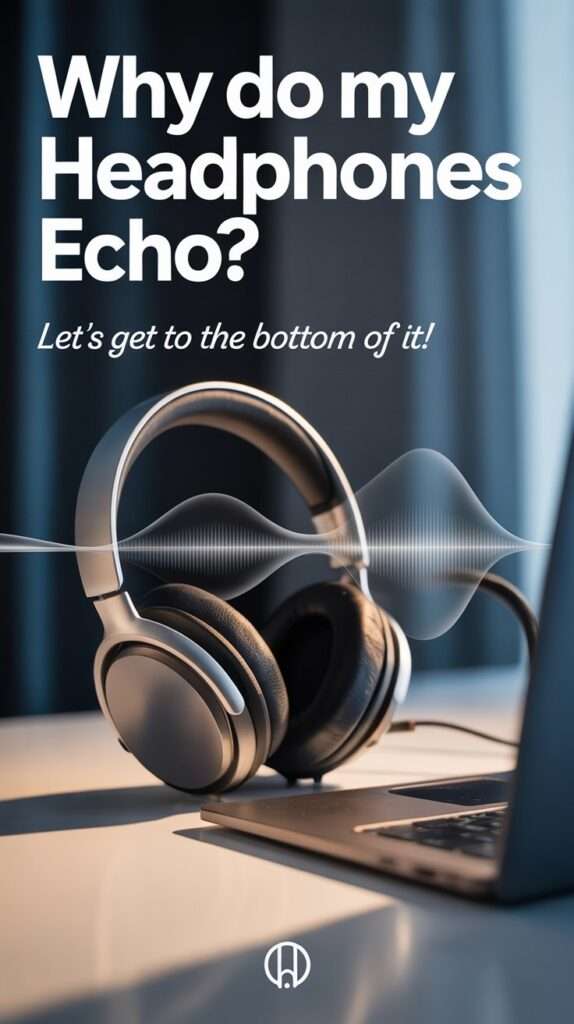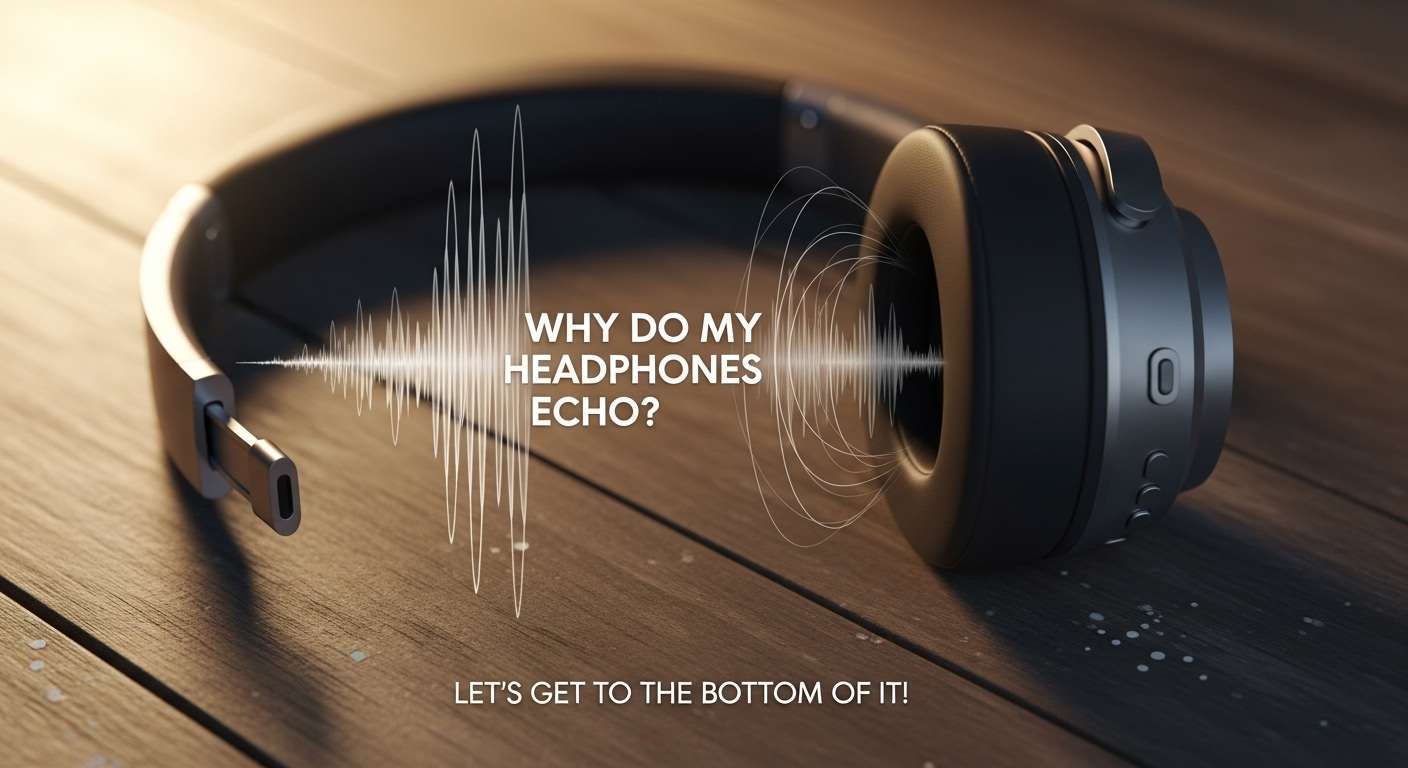Ever been in the middle of your jam or an important call when your headphones decide to throw in a surprise echo? Annoying, right? I’ve been there too midway through a podcast episode, suddenly hearing my own voice bounce back like I’m trapped in a cave.
So, why do headphones echo? Let’s chat about it like we’re hanging out, figure out what’s causing this pesky problem, and, best of all, how to fix it.
1. What’s Up with That Echo Anyway?
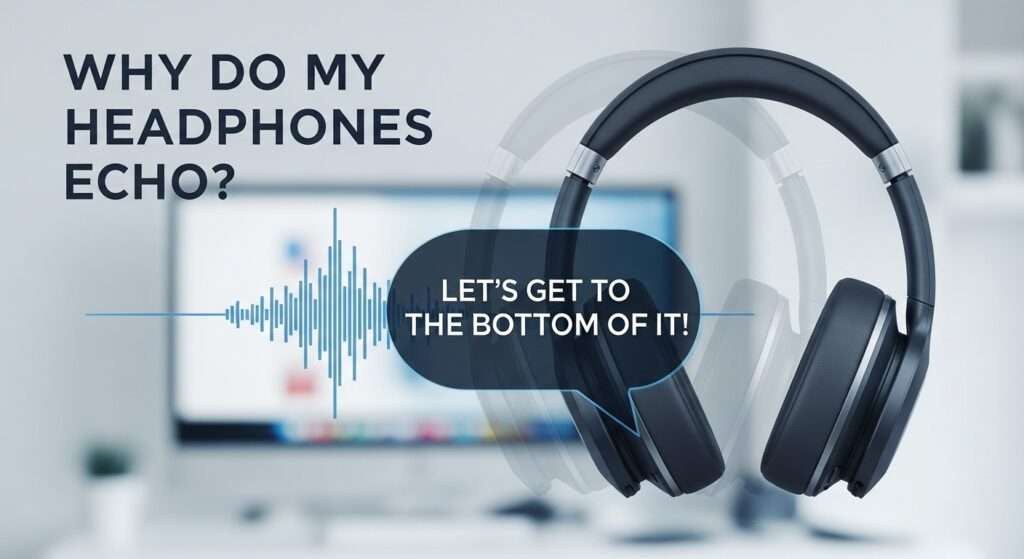
The Echo Effect Explained
Okay, first things first, the “echo” you hear isn’t just your headphones being rebellious. Usually, it happens when sound from the headphones gets picked up by the microphone, and then the mic sends it back out again. It’s like your headphones and mic are stuck in a loop, playing tag with your voice.
Ever shouted in a canyon and heard your voice bounce back? That’s a classic echo. The same idea applies here, but instead of walls reflecting your voice, it’s your headphones and mic. And yeah, it can feel like you’re talking to yourself… because, technically, you are.
Common Echo Culprits in Headphones
- Open-back headphones: These are great for immersive sound but tend to leak audio that the mic can pick up.
- Poor mic placement: If the mic is too close to the headphone speakers or your mouth’s vibration waves, you get feedback.
- Software settings: Sometimes, your computer or phone’s audio settings create an echo loop due to mic and speaker setup.
- Low-quality hardware: Cheap headphones sometimes have crappy insulation causing audio bleed.
- Bluetooth latency: Wireless headphones can sometimes suffer delay causing weird echo effects.
2. Why Does This Happen More Than You’d Think?
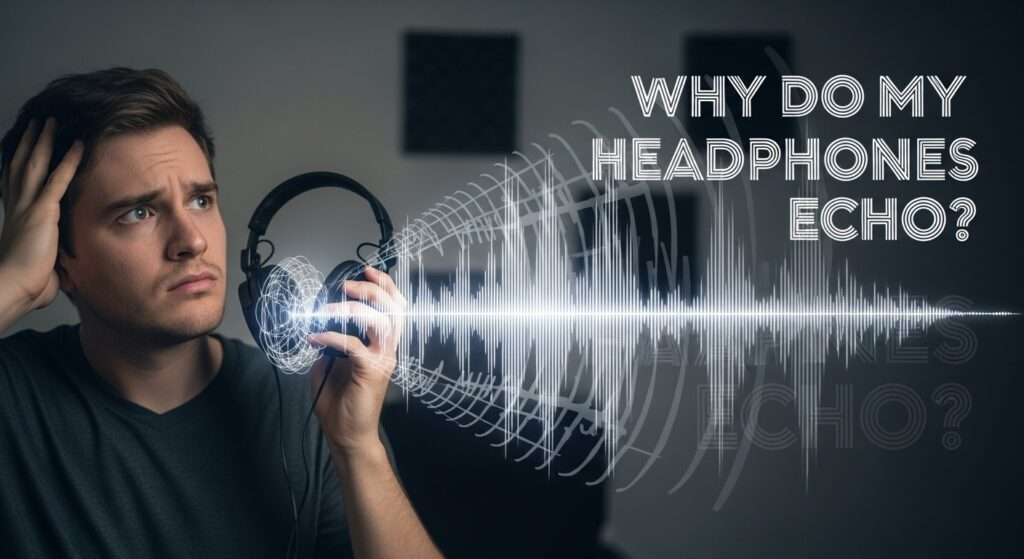
When Your Setup Is the Problem
Not all headphone-echos come from the headphones themselves. Sometimes your device settings or environment screw things up. For example, using headphones with a mic on a noisy or reflective surface can make your voice bounce back oddly.
Ever tried talking on a video call with your headphones on, and your friends suddenly mention an echo? Yeah, not great for your “listening skills” rep.
Software Glitches that Play Echo DJ
Even the best headphones can turn echo-y if your software plays tricks:
- Incorrect audio settings: Sometimes, your system might have “listen to this device” turned on, meaning your mic audio feeds directly to your speakers.
- Feedback loops: Your system might be mixing input and output channels in a way that causes looping feedback.
- Sound driver issues: Old or corrupted drivers can lead to weird audio problems like echo.
Bluetooth’s Hidden Quirks
Wireless headphones? Cool for convenience, but latency (the delay between audio sending and receiving) can cause an echo effect especially if the mic picks up delayed sound and sends it back.
3. How to Fix the Dreaded Headphone Echo
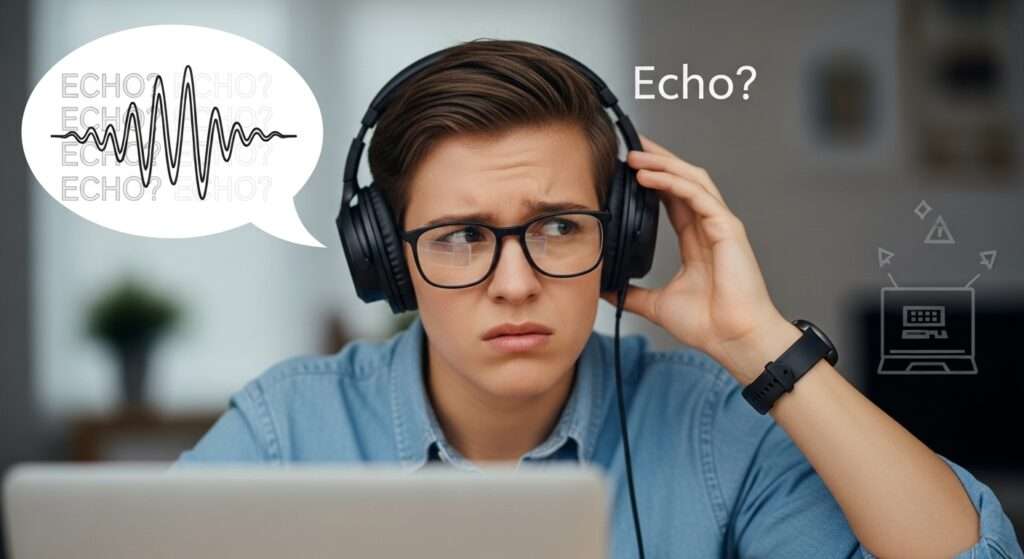
Quick Settings Checks That Save the Day
Before assuming your headphones are cursed, check these:
- Mute or reduce microphone sensitivity. Turning your mic volume down stops it from catching the speaker output.
- Check audio settings: Look for settings like “Stereo Mix,” “Listen to this device,” or audio enhancements that might be causing feedback.
- Use “echo cancellation” or noise suppression options: Most conferencing apps (Zoom, Teams, etc.) offer these features for a reason. Use ’em!
Hardware Fixes That Actually Work
- Use closed-back headphones: They block sound leakage better, so your mic won’t pick up what playing in your ears.
- Position your mic wisely: Keep the mic away from the headphone speakers, and don’t have it pointing directly at your mouth.
- Upgrade your headphones or mic: Sometimes, if your gear is old or low quality, it’s worth splurging a bit for better sound isolation and mic quality.
Software Solutions & Apps
Some nifty apps and drivers offer better control:
- VoiceMeeter (Windows): Lets you manage audio channels better, preventing feedback loops.
- Update your drivers: Always keep your audio drivers fresh it’s a surprisingly common fix.
- Use apps with built-in echo cancellation: Skype, Zoom, and Discord have this for a reason, so double-check it’s enabled.
4. When Echo Isn’t a Headphone Problem
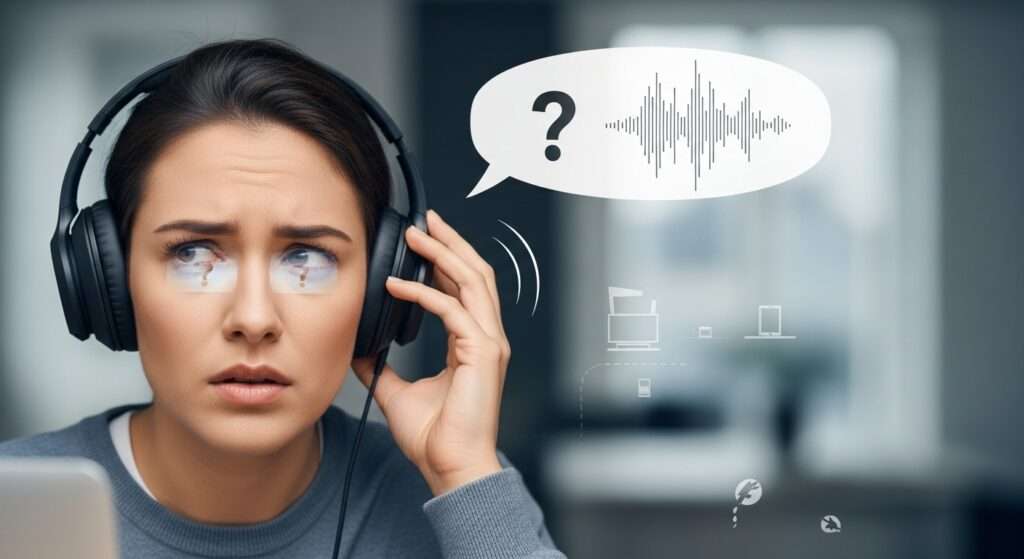
It Could Be Your Environment
No, your headphones aren’t secretly possessed. Sometimes, your room’s acoustics or background noise might create an echo-like effect on calls:
- Hard surfaces reflect sound: Bare walls, wooden floors, glass… they bounce audio everywhere.
- Noise from other devices: Another mic or speaker nearby could cause audio overlap.
- Internet issues: Laggy connections sometimes cause audio delays that sound like an echo.
Test With Other Devices
Before you blame your headphones, test the mic and headphones with another device. If the echo sticks around, it’s probably your headphones or setup. If not, your computer or phone might be the culprit.
5. Personal Experience: My Battle With Headphone Echo
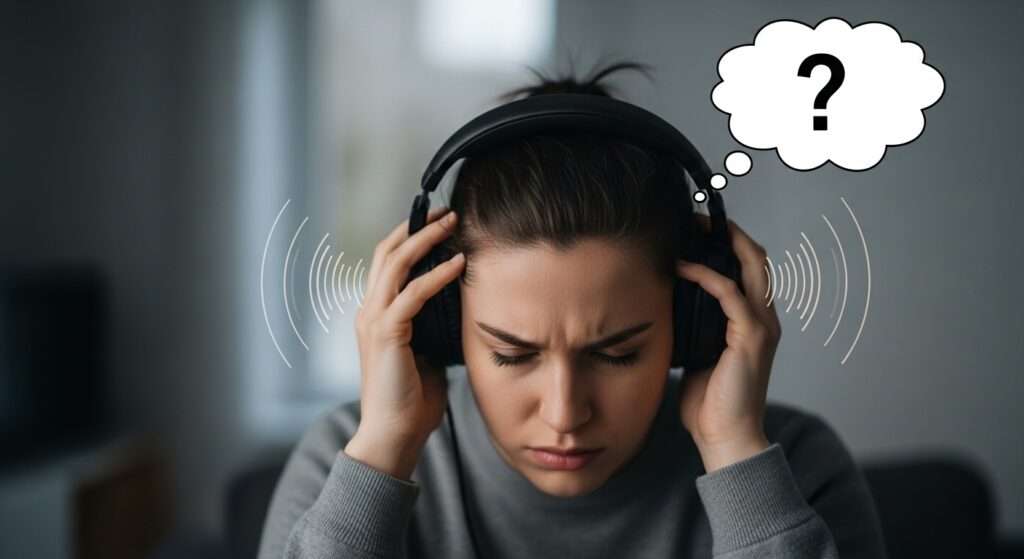
Gotta say, I once bought a budget Bluetooth headset for calls, thinking, “This will be fine.” Boy, was I wrong. Every time I spoke, I heard my words echoing back like a broken record. After hours of frustrating Google searches and settings fiddling, I realized the cheap mic was basically looping the headphone output.
Switched to a quality wired pair, positioned the mic properly, and boom echo vanished like magic. Lesson learned: sometimes, spending a bit more on decent gear cuts out a ton of hassle.
Pro Tips to Avoid Echo in the Future
- Opt for closed-back headphones if you do lots of calls or recordings.
- Always check mic and headphone placement.
- Regularly update your software and drivers.
- Use apps that automatically handle echo cancellation during calls.
- If recording, use audio interfaces or mixers that allow better control over sound input and output.
6. Why Do Some Headphones Echo More Than Others?
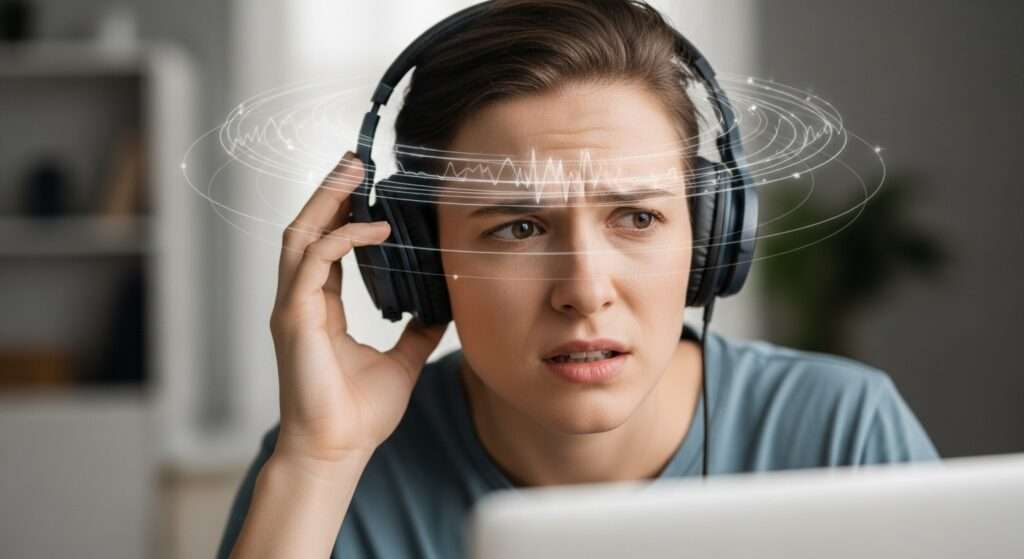
Open vs Closed Designs
Open-back headphones sound amazing but spill audio everywhere. Mics catch this airborne sound, leading to echoes. Closed-back headphones keep the sound contained—better for echo-free conversations.
Wired vs Wireless
Wireless convenience sometimes introduces latency. That slight delay means the mic catches the output a fraction later, creating an echo effect. Wired always wins for real-time, echo-free audio since there’s zero lag.
Conclusion
So, why do your headphones echo? It’s usually a combo of your headphones leaking sound, mic placement, and software settings making a feedback loop. The good news? Fixing it doesn’t require becoming an audio engineer.
Just keep an eye on your setup, tweak your settings, maybe invest in decent gear, and you’ll dodge that pesky echo like a pro.
Got an annoying echo in your headphones right now? Time to bust that echo, so your ears stop playing ping-pong with your voice. Your next call or jam session deserves better!
Stay echo-free, friend!
